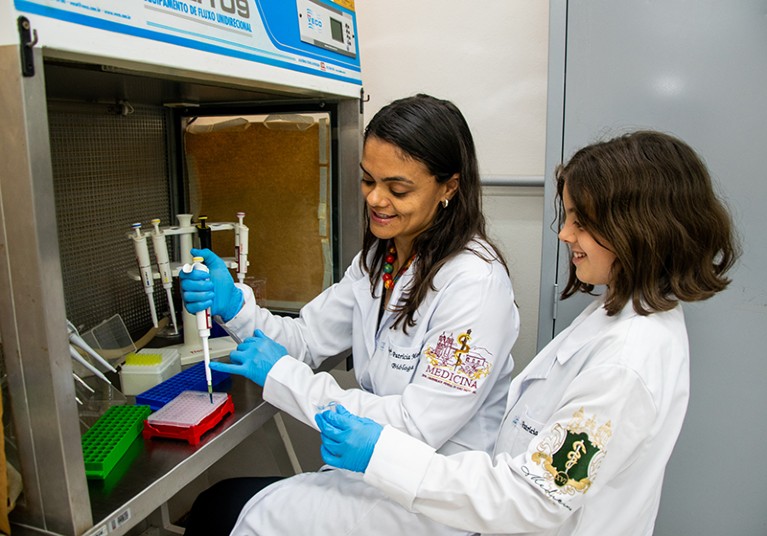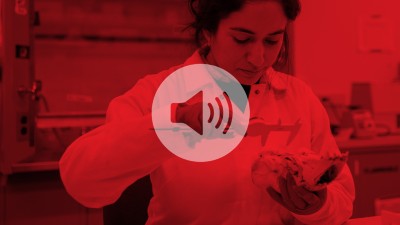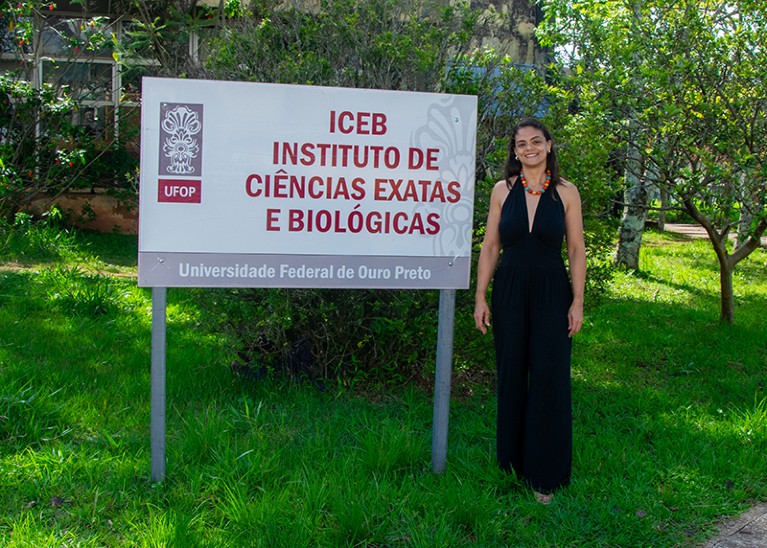
Patrícia de Abreu Moreira works alongside her daughter, Malu, in the laboratory at the Federal University of Ouro Preto (UFOP), Brazil, balancing her role as a scientist and a mother.Credit: Mateus Goncalves
Gender inequality in science is a long-standing issue and this is especially true in my country, where I work as an associate professor at the Federal University of Ouro Preto, Brazil (UFOP). Statistics reveal that although women make up the majority of undergraduate and graduate students in science in Brazil, they are under-represented among university faculty positions. A 2024 study1 of 69 Brazilian universities found that women from science, technology, engineering and mathematics (STEM) backgrounds occupied 26.3% of department lead roles in their field, whereas women in non-STEM subjects occupied 76.7%.
But when I was a student in 2003, studying biological sciences at the State University of Montes Claros, Brazil, this wasn’t something I’d thought much about. I had also never noticed it in the scientific environments I was part of. Not because it didn’t exist, but because I didn’t recognize the inequality, nor understand the importance of awareness and discussion. Having a male majority in science was normalized.
Women in science in Brazil often feel cornered and even intimidated when debating social assumptions that consistently place women on an intellectually inferior level compared with men. I distinctly remember feeling this way when I presented data on how motherhood affects womens’ careers in science and advocated for institutional policies: a man dismissed my argument as mere complaints about my daughter being a burden on my professional life.
I became more aware of gender equality after I became a mother, and my awareness grew during the COVID-19 pandemic. During the pandemic, when my daughter was four years old, I managed household tasks, taking care of her and my university responsibilities on my own. It was an incredibly challenging time and I constantly felt overwhelmed by the thought of not being able to meet all the demands. I found myself multitasking — preparing meals while attending remote university meetings on my computer, as well as teaching my daughter how to read and write.

Connecting girls in Brazil to inspiring female scientists
A 2016 study showed that employed women often experience work–family stress owing to their personal responsibilities, whereas men’s stressors are more often rooted in work2. Adding to this, after the birth of a child, female scientists in Brazil often experience a decrease in career productivity for at least four years3.
Having felt some of these negative effects on my own career productivity, I started investigating the topic in detail in 2020, alongside my existing research. I used a survey to explore the effects of parenthood on men and women at UFOP.
The unpublished results of this survey were striking: around 74% of women with children in faculty roles reported a significant decline in article publications after becoming mothers. By contrast, only 40% of men with children experienced any negative impact from fatherhood. Furthermore, parenthood negatively affected participation in scientific events for around 58% of women, compared with only 30% of men.
Launching a movement
More anecdotally, other women that I have met at UFOP told me that they had experienced similar issues as me. In June 2020, I co-founded a network at the university called Andorinhas: Rede de Mulheres da UFOP (Swallows: UFOP Women’s Network), named after birds that form groups to ensure their survival.
Initially, the network was conceived as a strategy for mutual support and sharing life experiences during the pandemic. However, it quickly evolved into a collective aimed at promoting gender equity in science and combating gender-based violence. In 2017, Cláudia Marliére became the first female head of UFOP. With her appointment, the Andorinhas network was able introduce several institutional policies for women at the university.
I had been bringing my daughter to UFOP since she was a baby and there were many times I had to change her nappy on campus. The lack of facilities for parents in certain spaces was so deeply ingrained at the time that changing my daughter’s nappy on a desk did not seem like a problem to me — until I realized how unsafe it was.

Biologist Patrícia de Abreu Moreira stands in front of the Institute of Exact and Biological Sciences at UFOP, where she has helped to enact change while working as a faculty member.Credit: Mateus Goncalves
In 2021, along with Roberta Froes, I took on the role of vice-director of the Institute of Exact and Biological Sciences (ICEB) at UFOP, a position I still hold. From our perspective as women, both single mothers, Roberta and I recognized the need for academia to become a more accommodating and supportive environment for parents. As a result, we established the first baby-changing room in the history of UFOP at the ICEB. This initiative led to the installation of more baby-changing rooms across other departments at our institution.
The Andorinhas network has introduced other initiatives at the university, too. For example, the university now stipulates that, in cases of maternity or adoptive leave, during the evaluation period for faculty promotion or progression the minimum number of credits required will be halved for people who have become mothers. Another initiative mandates that at least one-third of the examination board that selects faculty members at UFOP must be women, with race, gender, sexuality and disability quotas also taken into account.
I’m proud to be working to advance institutional changes for myself and other women in the field of science.
Initially, the arrival of my daughter had a negative impact on my career. In the four years following her birth, I was able to publish only two scientific articles and failed to secure any funding for my research. However, my daughter has been a significant source of inspiration. It was her arrival that made me realize the importance of equity and change in academia — and it ultimately led me to a new path of exploration as a woman, single mother and scientist, working to make science a more welcoming and inclusive field for future generations of women.






